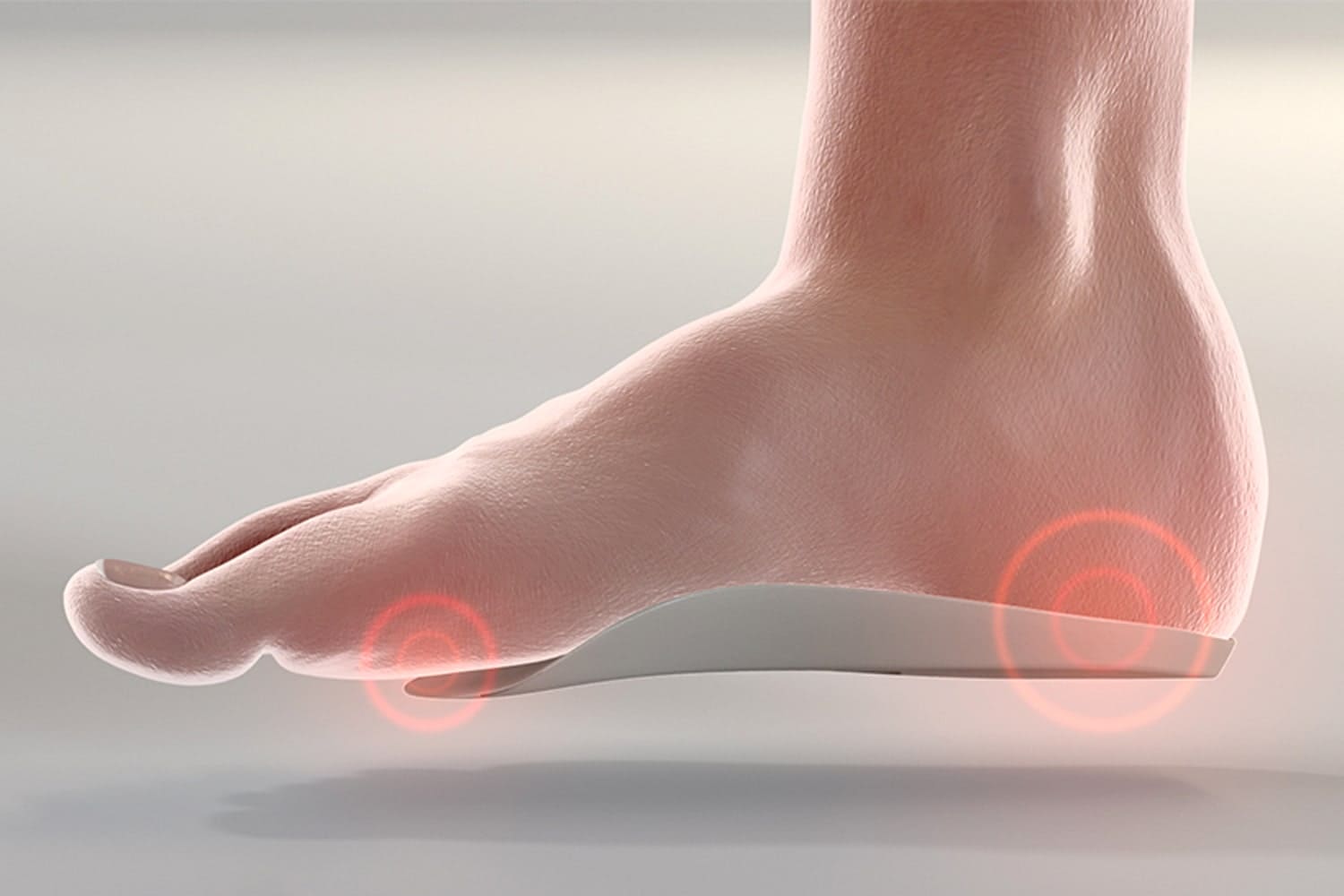Uncover the critical connection between obesity and foot ailments, and learn how managing weight can lead to healthier feet. Dive into our guide for tips on prevention, care, and improving foot health for a more active and comfortable life.

Introduction
Exploring the intricate link between obesity and foot health, this article sheds light on how excessive weight exacerbates foot conditions, leading to pain and mobility challenges. By delving into the mechanisms behind this connection, we offer actionable insights and strategies to mitigate foot problems through effective weight management and foot care practices.
Obesity is a growing concern worldwide, with significant implications for overall health, including the health of your feet. The connection between obesity and foot problems is well-documented, with excess weight contributing to a range of foot conditions that can lead to discomfort, pain, and decreased mobility. This article explores how obesity impacts foot health and offers insights into managing and preventing foot problems associated with excess weight.
Table of Contents
The Impact of Obesity on Foot Health

The relationship between obesity and foot health is complex and multifaceted, with excess body weight having a profound impact on the well-being of your feet. Understanding the specific ways in which obesity contributes to foot problems can help in developing strategies for prevention and management. Here’s a detailed exploration of the impact of obesity on foot health:
Increased Pressure on Feet
The mechanics of weight distribution mean that every extra pound of body weight places an additional four pounds of pressure on the feet. This significant increase in load can strain the various components of the foot, leading to a host of issues. Conditions such as plantar fasciitis, characterized by inflammation of the band of tissue that runs across the bottom of your foot, can cause severe heel pain. Similarly, the development of flat feet, where the arches of the foot collapse, can lead to discomfort and pain during movement. Heel pain, another common complaint, often results from the excessive burden that obesity places on the foot’s structure.
Altered Foot Structure
Obesity doesn’t just add pressure; it can also change the very shape and structure of the foot. The excess weight may cause the arches to flatten more than normal, and the foot can widen, leading to a change in foot mechanics. This alteration can disrupt the natural alignment and function of the foot, resulting in pain and discomfort during everyday activities. The changes in foot structure necessitate the need for proper footwear that can accommodate the altered shape and provide adequate support.
Increased Risk of Injuries
The additional stress on the feet caused by excess weight not only leads to chronic conditions but also increases the susceptibility to acute injuries. Sprains, fractures, and tendonitis become more likely as the feet are under constant strain from supporting an excessive load. Moreover, obesity can lead to an altered gait – the way in which a person walks – which can further increase the risk of injuries due to uneven weight distribution and improper foot mechanics.
Development of Arthritis
One of the long-term consequences of obesity on foot health is the development of osteoarthritis, particularly in the weight-bearing joints of the feet. The excess weight accelerates the wear and tear on the joint cartilage, leading to inflammation, pain, and stiffness. This degenerative condition can significantly impair mobility and quality of life, making weight management a crucial aspect of prevention and treatment.
Circulation Issues
Obesity is known to affect circulation, leading to poorer blood flow to the extremities, including the feet. This can have a direct impact on foot health, as reduced circulation can slow down the healing process, increase the risk of infections, and exacerbate conditions like diabetic foot ulcers. Ensuring good circulatory health through weight management, exercise, and proper nutrition is vital for preventing foot problems related to poor circulation.
Managing Foot Problems Related to Obesity
Managing foot problems related to obesity requires a comprehensive approach that not only addresses the immediate discomfort but also tackles the root cause of the issue. Here’s an elaborated discussion on strategies to manage and alleviate foot problems stemming from obesity:
Weight Management
The foundation of preventing obesity-related foot problems is to maintain a healthy weight. This involves:
| Balanced Diet: Incorporate a variety of nutrients into your diet, focusing on fruits, vegetables, whole grains, lean proteins, and healthy fats. Limiting processed foods, sugary beverages, and high-calorie snacks can help reduce calorie intake and promote weight loss. |
| Regular Physical Activity: Engage in at least 150 minutes of moderate aerobic activity or 75 minutes of vigorous activity each week, as recommended by health authorities. Activities could include walking, swimming, cycling, or any other exercise that you enjoy and can maintain regularly. This not only helps in managing weight but also improves cardiovascular health and enhances mood. |


Proper Footwear
Proper footwear is crucial in preventing foot problems:
| Supportive Shoes: Look for shoes with good arch support and a cushioned sole to help distribute weight evenly. This reduces pressure on any one part of the foot. |
| Proper Fit: Ensure that your shoes fit well. They should be snug but not tight, with enough room for your toes to move freely. Ill-fitting shoes can lead to a host of foot problems, including blisters, bunions, and calluses. |
| Activity-Appropriate Shoes: Wear shoes designed for specific activities. For example, running shoes for running, which are designed to absorb impact and provide the necessary support. |
Regular Exercise
Strengthening and stretching exercises can enhance foot health:
| Arch Lifts: Strengthen the arches by lifting them while keeping your toes and heels on the ground. |
| Toe Curls: Improve toe strength and flexibility by curling your toes to grasp objects or scrunch a towel on the floor. |
| Ankle Rolls: Enhance ankle flexibility and circulation by rolling your ankles in circular motions. |


Practicing Good Foot Hygiene
Keeping your feet clean and dry is essential in preventing infections and other foot problems:
| Daily Washing: Wash your feet daily with soap and water, making sure to dry them thoroughly, especially between the toes. |
| Moisturize: Apply a moisturizer to prevent dry skin and cracks. However, avoid moisturizing between the toes, as this can create a moist environment conducive to fungal infections. |
| Regular Inspections: Regularly inspect your feet for any signs of problems, such as redness, swelling, or cuts. Early detection and treatment can prevent minor issues from becoming major problems. |
Medical Treatment
For some individuals, addressing foot problems related to obesity may require medical intervention. Anti-inflammatory medications can help reduce pain and swelling, while physical therapy can strengthen foot muscles and improve mobility. In cases where conservative treatments are ineffective, surgical options may be explored to correct structural issues or relieve severe pain. Regular consultations with healthcare providers, including podiatrists and orthopedic specialists, are essential for monitoring progress and adjusting treatment plans as needed.

Professional Consultations to Get Relief from Foot Ailments
Regular check-ups with healthcare professionals can help monitor your overall health and catch potential foot problems early. For individuals with specific foot concerns or a history of foot problems, consultations with a podiatrist can provide tailored advice and preventive strategies.
FAQ Section
Q1: How does obesity affect foot health?
A1: Obesity increases pressure on the feet, altering their structure, increasing injury risk, and accelerating wear and tear on joints, leading to conditions like arthritis.
Q2: What foot problems are associated with obesity?
A2: Common issues include plantar fasciitis, flat feet, heel pain, arthritis, and circulation problems.
Q3: Can losing weight improve foot problems?
A3: Yes, even modest weight loss can significantly reduce foot pain and improve mobility.
Q4: What types of exercises are safe for people with obesity-related foot problems?
A4: Low-impact activities like swimming, cycling, and specific foot exercises are beneficial.
Q5: How important is footwear in managing foot problems due to obesity?
A5: Proper footwear with adequate support and custom orthotics can alleviate pain and correct abnormal walking patterns.
Q6: Are there specific foot care practices recommended for individuals with obesity?
A6: Regular foot hygiene, moisturizing, checking for sores or infections, and professional foot assessments can prevent complications.
Q7: How does obesity impact the healing of foot injuries?
A7: Obesity can slow down the healing process due to poorer circulation and increased pressure on injured areas.
Q8: Is it necessary to see a podiatrist if you’re obese and experiencing foot pain?
A8: Yes, a podiatrist can provide tailored advice and treatment options to address foot pain related to obesity.
Q9: Can diet changes alone improve foot health in obese individuals?
A9: While diet changes contribute to weight loss and can improve foot health, combining dietary adjustments with physical activity is more effective.
Q10: What role does inflammation play in obesity-related foot problems?
A10: Obesity can increase systemic inflammation, exacerbating foot pain and contributing to conditions like plantar fasciitis.
Conclusion
The undeniable connection between obesity and foot health underscores the necessity of holistic health management. By focusing on weight control and adopting appropriate foot care measures, individuals can alleviate foot-related discomfort and enhance their overall quality of life. Embracing a healthy lifestyle, selecting the right footwear, and seeking professional guidance are pivotal steps toward mitigating the impact of obesity on foot health, paving the way for a more active and pain-free existence.









